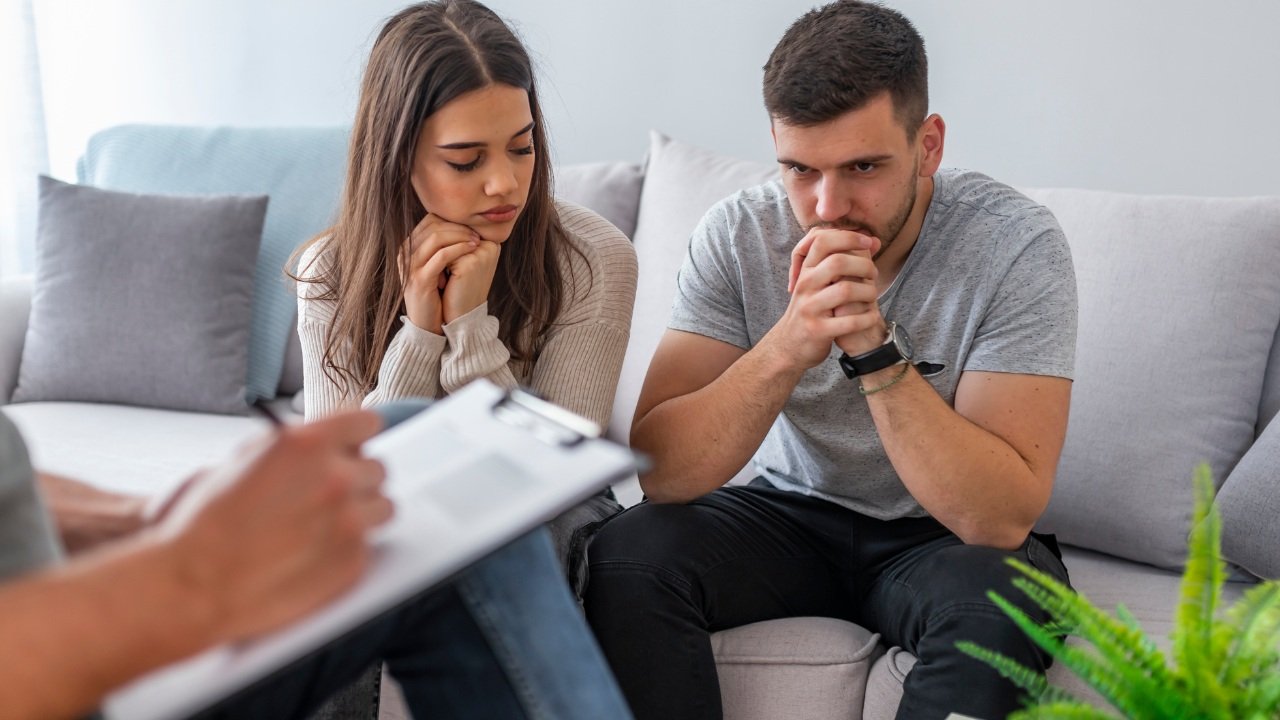Navigating the complexities of depression within a relationship can feel isolating and overwhelming. But what if healing could be a shared journey? Couples therapy offers a powerful pathway to navigate the challenges of depression as a team, fostering deeper understanding, stronger communication, and ultimately, a more resilient relationship. This guide explores how couples therapy can help you and your partner find relief and build a brighter future together.
What Is Couples Therapy?
Couples therapy, also known as relationship counseling or marital therapy, is a type of psychotherapy designed to improve communication, resolve conflicts, and strengthen the bond between partners. It addresses a wide range of relationship issues, including those stemming from depression. Effective couples therapy focuses on enhancing emotional intimacy, understanding individual needs, and developing healthier interaction patterns. This collaborative approach empowers couples to learn effective communication skills and build a more fulfilling partnership. Relationship problems often stem from unmet needs and poor communication, which couples therapy directly addresses.
How Can Couples Therapy Help With Depression?
Depression significantly impacts relationship dynamics, affecting communication, intimacy, and overall well-being. Couples therapy provides a supportive environment for both partners to understand the effects of depression. Therapists help individuals learn coping mechanisms for managing depressive symptoms and build resilience. This shared journey promotes empathy, reduces conflict, and fosters a stronger sense of connection. The focus on improving communication and conflict resolution skills directly addresses many stressors that can worsen depression. Emotional regulation techniques learned in therapy empower partners to better manage their responses to difficult situations.
What Are the Signs That Couples Therapy Might Be Needed?
Recognizing the signs that couples therapy could benefit your relationship is crucial. If depression is causing significant strain on your connection, leading to frequent arguments, emotional distance, or a lack of intimacy, seeking professional help is essential. Trust issues, commitment concerns, and difficulty resolving conflicts are common indicators. Changes in mood, decreased sexual desire, and persistent feelings of loneliness within the relationship also signal the potential need for intervention. Addressing these issues early can prevent further damage to the relationship and improve individual well-being. Ignoring these symptoms can lead to further emotional distance and even relationship dissolution.
What Techniques Are Used in Couples Therapy?
Couples therapists utilize various evidence-based techniques tailored to each couple's unique needs. Cognitive behavioral therapy (CBT) helps identify and modify negative thought patterns and behaviors contributing to relationship problems. Emotionally Focused Therapy (EFT) emphasizes emotional connection and understanding. Gottman Method therapy focuses on building friendship and intimacy. Active listening, empathy, and clear communication are fundamental to successful therapy, enabling partners to express their feelings and perspectives without judgment. The goal is to equip couples with tools and strategies for navigating future challenges effectively.
What Can You Expect From Couples Therapy Sessions?
Therapy sessions provide a safe and confidential space for open communication and exploration. Sessions typically involve discussions about the relationship's challenges, individual experiences with depression, and strategies for improvement. Therapists act as guides, helping couples identify patterns, develop coping mechanisms, and strengthen their connection. Many therapists now offer online therapy sessions, providing flexibility and convenience. Support groups can also supplement individual and couples therapy, offering a sense of community and shared experience. The overall aim is to create a collaborative environment fostering mutual understanding and healing.
How Long Does Couples Therapy Typically Last?
The duration of couples therapy varies greatly depending on the couple's needs and goals. Some couples may benefit from a shorter-term intervention, while others may require longer-term support. Treatment frequency also varies, with some couples meeting weekly, while others opt for bi-weekly or monthly sessions. The length of therapy is determined collaboratively, with regular progress assessments guiding the process. The ultimate aim is to achieve lasting improvements in communication, conflict resolution, and overall relationship satisfaction. Progress is not linear and often involves setbacks, therefore patience and perseverance are crucial.
How to Choose the Right Couples Therapist?
Selecting the right therapist is crucial for successful therapy. Look for a licensed therapist with experience working with couples and depression. Consider their approach and ensure it aligns with your preferences and needs. Schedule consultations to determine compatibility and comfort level. A strong therapeutic alliance based on trust and mutual respect is vital. Examine their qualifications, experience in handling depression-related relationship issues, and overall approach. Ensure you feel comfortable and confident in their ability to support you throughout the process.
The Impact of Depression on Relationships
Depression profoundly impacts relationships, leading to decreased communication, emotional withdrawal, and increased conflict. Depressed individuals often struggle with maintaining intimacy, experiencing changes in libido, and difficulty expressing needs and feelings. This can create distance and resentment, straining the relationship further. Unresolved conflicts and misunderstandings can escalate, leading to feelings of isolation and loneliness within the partnership. Addressing these issues is vital for preserving the relationship and improving the well-being of both partners.
Techniques for Improving Communication and Emotional Intimacy
Effective communication is the cornerstone of a healthy relationship. Learning active listening techniques, expressing needs and feelings clearly and assertively, and validating each other's emotions are crucial. Practicing empathy and understanding differing perspectives fosters connection and intimacy. Spending quality time together, engaging in shared activities, and showing appreciation for each other strengthens the bond and combats feelings of isolation. Conscious efforts to improve communication and emotional intimacy build resilience and improve the overall quality of the relationship.
Case Studies of Successful Couples Therapy Outcomes
Many studies highlight the effectiveness of couples therapy in treating depression-related relationship challenges. Couples often report significant improvements in communication, conflict resolution, and intimacy following therapy. Improved emotional regulation, enhanced coping mechanisms, and increased understanding https://codynhtt544.image-perth.org/discover-greeley-s-top-doctors-in-2025-your-guide-to-excellent-healthcare of each other's experiences are common outcomes. Successful cases often demonstrate the power of collaborative effort, mutual support, and the commitment to rebuilding a healthier and more fulfilling relationship. These positive experiences provide encouragement and demonstrate the potential for positive change.

Frequently Asked Questions
What is the difference between individual therapy and couples therapy?
Individual therapy focuses on individual issues and personal growth, while couples therapy addresses relationship dynamics and interactions. While they can be complementary, couples therapy specifically targets the relationship itself.
How much does couples therapy typically cost?
The cost varies depending on the therapist's location, experience, and insurance coverage. It's advisable to inquire about fees and insurance options during the consultation process.
Can couples therapy be done online?
Yes, many therapists offer online or telehealth couples therapy, providing flexibility and convenience.
What if one partner is not interested in therapy?
It can be challenging, but encouraging reluctant partners to participate by emphasizing the potential benefits for the relationship and individual well-being can be helpful.
What are some common misconceptions about couples therapy?
Misconceptions include the belief that therapy is solely about fixing blame, that it only works for couples on the brink of separation, or that couples must be completely compatible to benefit. Therapy often focuses on improving communication and understanding, regardless of the relationship’s current status.
In conclusion, couples therapy provides a valuable tool for navigating the challenges of depression within a relationship. By fostering stronger communication, building empathy, and equipping partners with effective coping mechanisms, couples therapy empowers individuals and couples to build a healthier, more resilient, and fulfilling connection. If you and your partner are facing the difficulties of depression, consider seeking professional help to embark on this shared journey toward healing and growth. Remember, seeking support is a sign of strength and a commitment to your relationship’s well-being.

